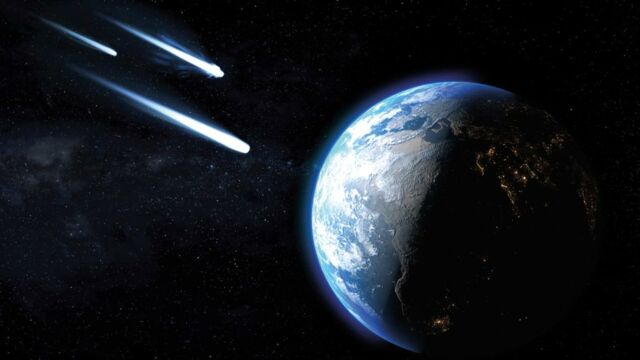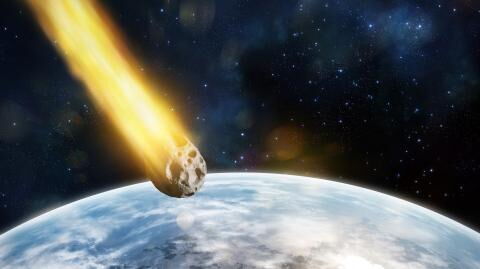Both a threat to planet Earth and a treasure trove of unsuspected riches, asteroids fascinate us as much as we fear them. Some hold astronomical amounts of gold, others priceless diamonds, while others lurk dangerously around the planets.
Discover our latest podcast
Lightning-fast asteroids
While we are not immune to a future 'chicxulub asteroid' - the one that caused the end of the dinosaurs and plunged the Earth into years of darkness - we do have the means to protect ourselves. So NASA is constantly scanning the sky for potential threats to humanity.
The ones we are about to see are called 2019 BO2 and 2019 BZ4. The two meteors are relatively similar in diameter, ranging from 15 to 36 metres, but differ in terms of speed. According to NASA's calculations, they should pass close to Earth on Tuesday.
Are they dangerous?
BO2 is in fact three times faster than its companion. According to the astronomers' analysis, it is travelling at a speed of 16.21 km per second. That's 58,356 km/h (36.261 m/h), not bad, eh?
According to our calculations, this means that our dear BO2 is going eight times faster than the fastest fighter plane in the world.
BZ4, on the other hand, is much slower. The latter only travels at a speed of 5.60 km/s, or 20,160 km/h (12.527 m/h). That's quite a speed, but how dangerous are they? Are they a threat to the Earth and, by extension, to humanity and all living things?
What if they hit the Earth?
Well, not really. Despite what the survivalists say, this is not yet the time to take refuge in your bunker! BO2 will pass by the Earth but at a distance of 2.4 million kilometres from it. This is a very close distance in terms of the size of the universe, but enormous on our scale.
On the other hand, if it were to fall on our planet, it could cause a lot of damage, both material and human. Let's imagine, for example, that this asteroid falls in London.
According to the asteroid launcher simulator, the crater would destroy around 13 km (8 miles) around it. The explosion would be the equivalent of 723 Kilotons of TNT.
If an asteroid did strike, the causes of death for humans could be from the impact, the sound shock and from the blast of the explosion. Fortunately, NASA has already succeeded in deflecting the trajectory of an asteroid that was passing close to our beloved Blue Planet. We are saved!
This article was translated from Gentiside FR.
Sources used:
The Jerusalem Post: '2 asteroids the size of 100 pugs to pass Earth Tuesday - NASA'
Neal.fun: 'Asteroid launcher'















